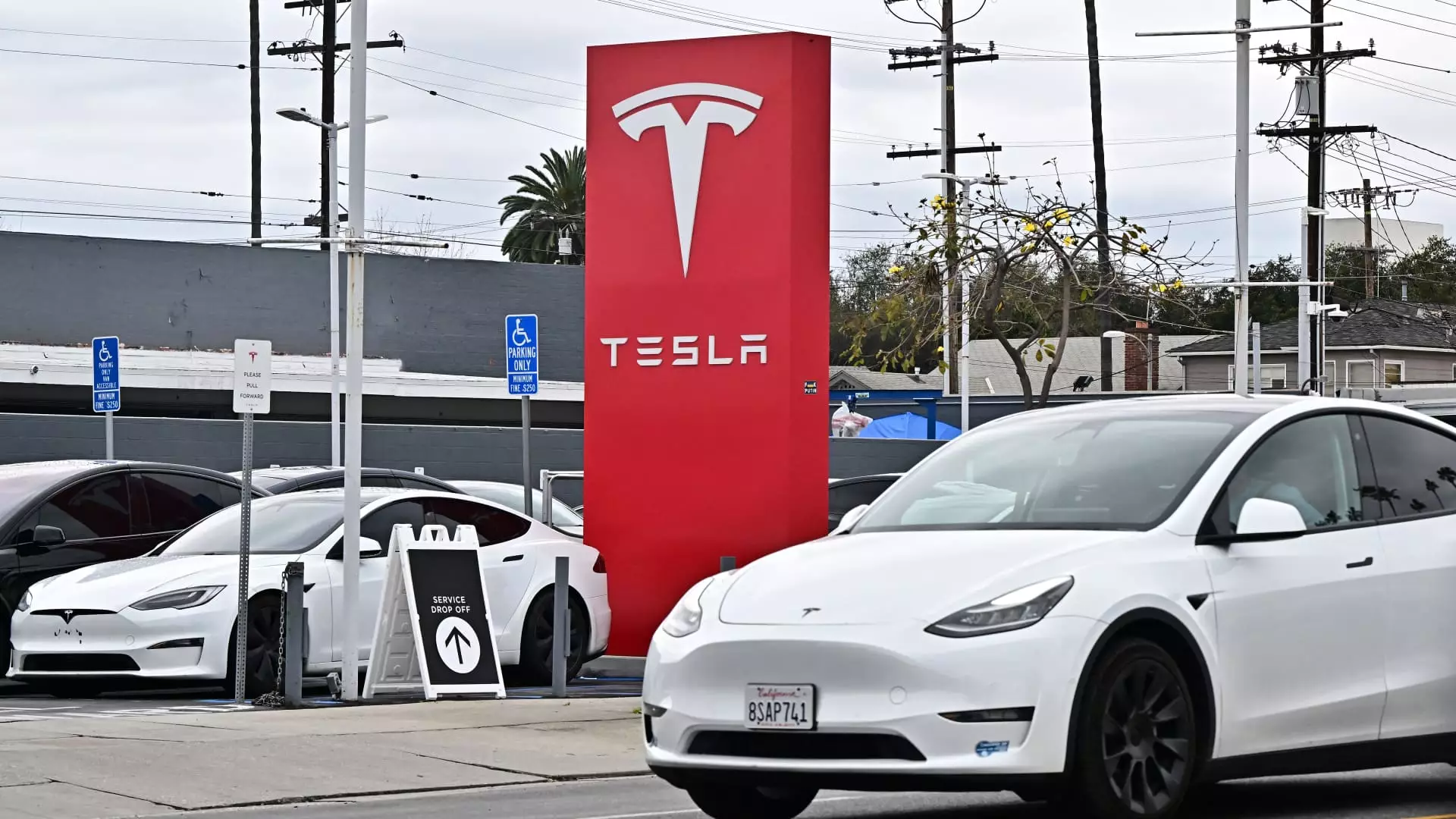Tesla once stood proudly as the vaulted emblem of the electric vehicle (EV) revolution, embodying innovation and sustainability. However, as Elon Musk transitions from tech titan to political player, the once golden brand is seemingly tarnishing under his leadership. A recent report from Edmunds has exposed the uncomfortable truth that Tesla owners are now trading in their vehicles in record numbers, indicative of a troubling shift in consumer sentiment and loyalty. This changing tide is not merely circumstantial; it is a reflection of deeper issues regarding Musk’s management style and the overall direction in which he has steered the company.
Government Influence or Corporate Mismanagement?
Musk’s ascent to power as the head of the Department of Government Efficiency (DOGE) marks a significant and contentious pivot from the boardroom to the political arena. Instead of focusing on advancing Tesla’s reputation and product lineup, he seems preoccupied with enacting sweeping changes in government operations and slashing federal spending. While his unabashedly right-leaning approach may resonate with a segment of the populace, it jeopardizes the very brand he has built. His notable financial influence in inciting Donald Trump’s return to the White House—a staggering $290 million—raises questions about his priorities. Are they aligned with the future of sustainable transportation or with political maneuvering?
Sales Declines Amidst Controversy
The fallout from Musk’s broader ambitions can be seen in Tesla’s flagging sales figures. Edmunds revealed that Tesla’s sales sank by around 11% in the U.S. just last year, reflecting a broader trend of waning consumer loyalty. As established automakers like Ford, Chevrolet, and Volkswagen ramp up heretofore unseen electric offerings, Tesla faces increased competition for a dwindling customer base. The outcry from protests and echoing vandalism against Tesla’s assets highlights the company’s growing image problem. It is unfortunate, but it appears that Tesla’s descent comes hand in hand with Musk’s political gambits. As tensions rise, so do the stakes for a brand that was once celebrated.
Brand Loyalty and the Cult of Musk
One cannot overlook the unique relationship Tesla shares with its CEO. Musk is not merely a leader; he is a cultural icon. In fact, August 2024 polls revealed that a mere 2% of car shoppers in the U.S. were unfamiliar with his name. Though the brand undoubtedly benefits from this association, it runs the risk of becoming a double-edged sword. As Musk’s actions increasingly court criticism—ranging from his controversial statements to government overreach—some Tesla enthusiasts may contemplate severing ties. According to Jessica Caldwell of Edmunds, the wavering loyalty could very well offer fertile ground for competitors vying to attract disenchanted Tesla owners. The age of Musk-centric loyalty appears to be fading; it’s akin to a delicate balance where adoration teeters on a precipice of discontent.
Market Value Deterioration
As if the decline in sales was not disheartening enough, Tesla’s brand value has plummeted dramatically over the past couple of years. Brand Finance reports a striking 26% drop in value in 2024 alone—an ominous sign for any corporation but especially so for one relying on a powerful public image. When a company’s brand is intrinsically tied to its founder, any dip in reputation can spell disaster. In recent months, Tesla’s online engagement and consumer interest have fallen to their lowest levels since late 2022. It’s an alarming trend that necessitates introspection from the corporate establishment: Can Tesla recover from the self-inflicted wounds that come with Musk’s dual role in business and politics?
Looking Beyond the Horizon
The current landscape indicates that Tesla faces an uphill battle recovering its former glory. With trade-ins reaching unprecedented levels, it remains to be seen whether Musk can redirect his focus back to the core values that catapulted Tesla to the forefront of the automotive revolution while avoiding the pitfalls of brand dilution and operational mismanagement. The future of Tesla hinges not just on the electric prowess of its vehicles but also on an effective re-engagement with an increasingly skeptical consumer base. As Musk tackles external political objectives, the question remains: is he paying too high a price for ambition at the expense of his automotive legacy?

